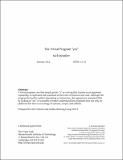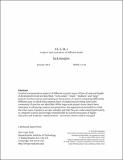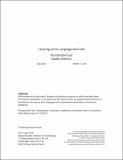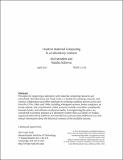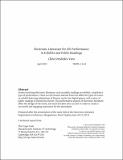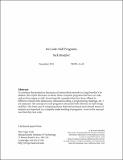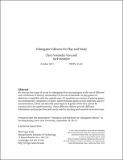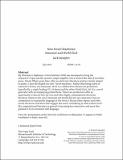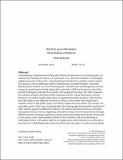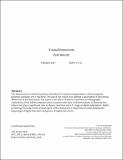Browsing Trope Report Technical Report Series by Issue Date
Now showing items 1-10 of 10
-
The Trivial Program "yes"
(2012-01-01)A trivial program, one that simply prints “y” or a string that is given as an argument repeatedly, is explicated and examined at the levels of function and code. Although the program by itself is neither interesting ... -
XS, S, M, L: Creative Text Generators of Different Scales
(2013-05-14)Creative text generation projects of different sizes (in terms of lines of code and length of development time) are described. “Extra-small,” “small,” “medium,” and “large” projects are discussed as participating in the ... -
Carrying across Language and Code
(2013-05-14)With reference to electronic literature translation projects in which we have been involved as translators or as authors of the source work, we argue that the process of translation can expose how language and computation ... -
Creative Material Computing in a Laboratory Context
(2013-05-14)Principles for organizing a laboratory with material computing resources are articulated. This laboratory, the Trope Tank, is a facility for teaching, research, and creative collaboration and offers hardware (in working ... -
Electronic Literature for All: Performance in Exhibits and Public Readings
(2013-05-14)Events involving electronic literature, such as public readings or exhibits, constitute a type of performance. These are the lessons learned from two different types of events, an exhibit featuring adaptations of literary ... -
No Code: Null Programs
(2014-06-05)To continue the productive discussion of uninscribed artworks in Craig Dworkin’s No Medium, this report discusses, in detail, those computer programs that have no code, and are thus empty or null. Several specific examples ... -
Videogame Editions for Play and Study
(2014-06-05)We discuss four types of access to videogames that are analogous to the use of different sorts of editions in literary scholarship: (1) the use of hardware to play games on platforms compatible with the original ones, (2) ... -
New Novel Machines: Nanowatt and World Clock
(2014-12-19)My Winchester’s Nightmare: A Novel Machine (1999) was developed to bring the interactor’s input and the system’s output together into a texture like that of novelistic prose. Almost fifteen years later, after an electronic ... -
Stickers as a Literature-Distribution Platform
(2014-12-19)Contemporary experimental writing often directs its attention to its writing space, its medium, the material on which it is presented. Very often this medium is meaningful and becomes part of the work – the printed text ... -
Textual Demoscene
(2015-02-27)The demoscene is a mainly European subculture of computer programmers, whose programs generate computer art in real time. The aim of this report is to attempt a description of the textual dimension of the demoscene. The ...

